Europe is an interesting continent full of culture and history. When travelling to a country, the experience can sometimes be even greater if you choose to read a book set in that country during your trip. Or you can stay at home on the couch and travel through Europe in the world of books!
We present 12 fiction books that take you to 12 different countries in Europe. Do you have any other suggestions for exciting or interesting fiction or memoirs set in Europe?
Table of contents
Estonia: Purging by Sofi Oksanen
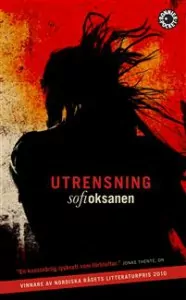
Purging is a literary masterpiece. Every now and then you meet writers who can master the language, but mastering storytelling is an art. In this book we meet an old woman in the Estonian countryside. She chases flies and makes pickles. Suddenly she sees a bundle in the garden - is it a human being? And why does the old woman, who jams and juices, carry so much fear? The beast in the garden is not just a man, but a girl who carries the history of both women and Estonia. And who is hunted. This is both a thriller and a historical novel. Read it!
Finland: mirage 38 by Kjell Westö
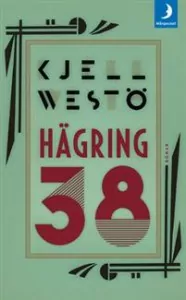
I mirage 38 takes you to intellectual Helsinki in the 1930s. In a gentlemen's club, politics and what is happening in Europe are discussed from different political perspectives. Interesting to read about afterwards! I (who consider myself pretty good at the Swedish language) also get to learn a lot of new words for once. The book is not only educational, but also exciting! Throughout the story, you get to follow Mrs Wiik, the secretary of one of the members of the men's club, whose dark secret leads in an unexpected direction.
France: Sarah's key by Tatiana de Rosnay
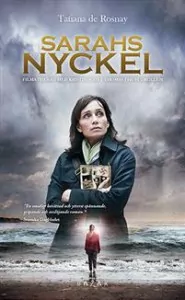
Sarah's key is a book you won't want to put down! When the French police knock on Sarah's family's door in Paris in 1942, she hides her little brother in the wardrobe, locks the door and puts the key in her pocket. She thinks they will come back later, but instead they are taken to the sports centre. Vel´d´hiv along with thousands of other Jews and locked up. Days pass as Sarah fingers the key in her pocket with increasing desperation. Alongside Sarah's story is that of French-American journalist Julia Jarmond, who 60 years later writes a report about Vel´d´hiv-The raid - an episode in history that the French seem to want to forget.
Italy: Steel by Silvia Avallone
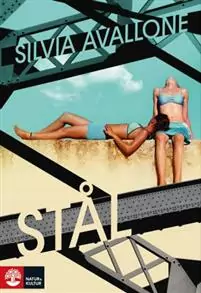
I Steel life pulsates around the steelworks, where the intense heat is slamming, and where someone loses a hand every now and then. The children pee in the stairwells of the apartment blocks, the men supplement their income with crime and the women pop pills and grow old prematurely. The story's young protagonists, Anna and Francesca, realise that they have never seen snow, but they have seen drugs. The book revolves around the girls' sudden discovery of themselves as sexual beings, and as the centre of the male gaze. The question that follows you through the book: if you were born here, can you leave and choose a different life?
Croatians: Blackout by Johanne Hildebrandt
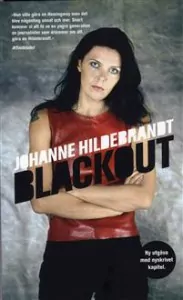
I Blackout follows Johanne Hildebrandt during her ten years as a war reporter in the Balkans. When she first arrived in Croatia to become a war correspondent, things almost ended badly. She was hit by shrapnel, arrested for espionage and threatened with deportation. In time she learnt to work in war and this is her terrible and important story. The latest version of the book also includes a chapter that reveals what happened to the main characters after the war. It's been many years since I read it, but some scenes have stuck with me...
Poland: A short stop on the road from Auschwitz by Göran Rosenberg
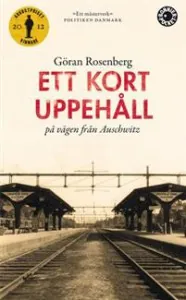
I A short stop on the road from Auschwitz Göran Rosenberg tells the story of his father, who miraculously survived the Holocaust and Auschwitz. In the next phase of his life, his father ends up in Södertälje with his wife, who has made the same journey. Step by step, they take on the new country. They get a job in a factory, they move into a small studio apartment with a kitchenette, they learn the language, they have a child whom they give the most Swedish of all names: Göran. Things seem to be going really well and it is only gradually that it turns out that Göran's father may not have survived Auschwitz after all, that evil not only kills quickly but also slowly.
Romania: Bury me standing up by Isabel Fonseca
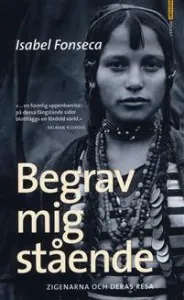
Bury me standing up tells the story of perhaps the most prejudiced group of people: the Gypsies. Isabel Fonseca is an American journalist who has lived with Gypsies in Eastern Europe and has made a serious attempt to understand their history. Where do they come from? Why have they lived a nomadic life? What is it that makes it difficult for "the rest of us" to accept them? Worth reading if you are curious about the world! And the title? It refers to a gypsy man who in a dramatic farewell exclaims "Bury me standing, all my life I have been on my knees".
Russia: City of thieves by David Benioff
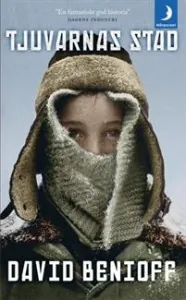
City of thieves is set in the winter of 1942, when Leningrad is under siege by the Germans. It is terribly cold and for the inhabitants every day is a struggle to survive the cold, hunger, bombing and crime. 17-year-old Lev is caught stealing from a German paratrooper and placed in a cell with deserter Kolja. The two boys await an inevitable execution, but instead are given a very strange assignment. The Russian colonel needs twelve eggs for his daughter's wedding cake and promises both men their lives if they can get the eggs.
The United Kingdom: The midwife in the East End by Jennifer Worth

The midwife in the East End is a fascinating true story by Jennifer Worth, who worked as a midwife and nurse in the poorest parts of London in the 1950s. The book is a fascinating historical document, not least because it tells us about the view of women and medicine in Europe not so long ago. It is sometimes a little dizzying to realise how poor and underdeveloped it could be in our part of the world so late in the day that people can still remember it.
Sweden: Giving birth to a child by Kristina Sandberg
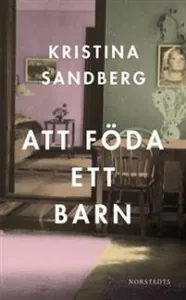
Giving birth to a child is a story about Sweden in the 1930s. Maj becomes pregnant and is forced to marry in order to keep her honour. The marriage is not quite what she wanted and while reading the book, I am incessantly happy that I do not live in the time when women had to adapt and become housewives. The book is an interesting (female) historical portrayal and if you are interested in Swedish home cooking it is a real goldmine! From the first page to the last, you eat your way through the original Swedish cuisine.
Germany: The book thief by Markus Zuzak

The book thief is a different book in many ways. The story is narrated by Death and set in Nazi Germany, but as if Nazi Germany is just something vague going on in the background. If you are a nine-year-old girl, you have nothing to compare it to and Nazi Germany seems quite normal. Hiding a Jew in the basement is dangerous, but not insanely weird. Many hate Jews and follow the Fuhrer through the Hitler Youth, others focus on stealing books. Fascinating reading!
Austria: The selected by Steve Sem-Sandberg

The selected is set in the Spigelgrund clinic in Vienna. We know (unfortunately) what happened to the Jews during the Second World War. We also know that Nazi Germany, in an attempt to "purify the race", wanted to exterminate people with hereditary diseases and other "bad character traits". But what happened to the handicapped and 'imperfect' children? Well, they were sent to clinics like Spiegelgrund. Here, "treatment" meant euthanasia and the parents, who naturally asked for their children, were given a restraining order. Worth reading and eye-opening!
Previous posts in this series:
- Travelling to North and South America in the world of books
- Travel to Africa in the world of books
- Travel to Asia in the world of books
Do you have children and want to read to them? Read these tips on how to read to children.


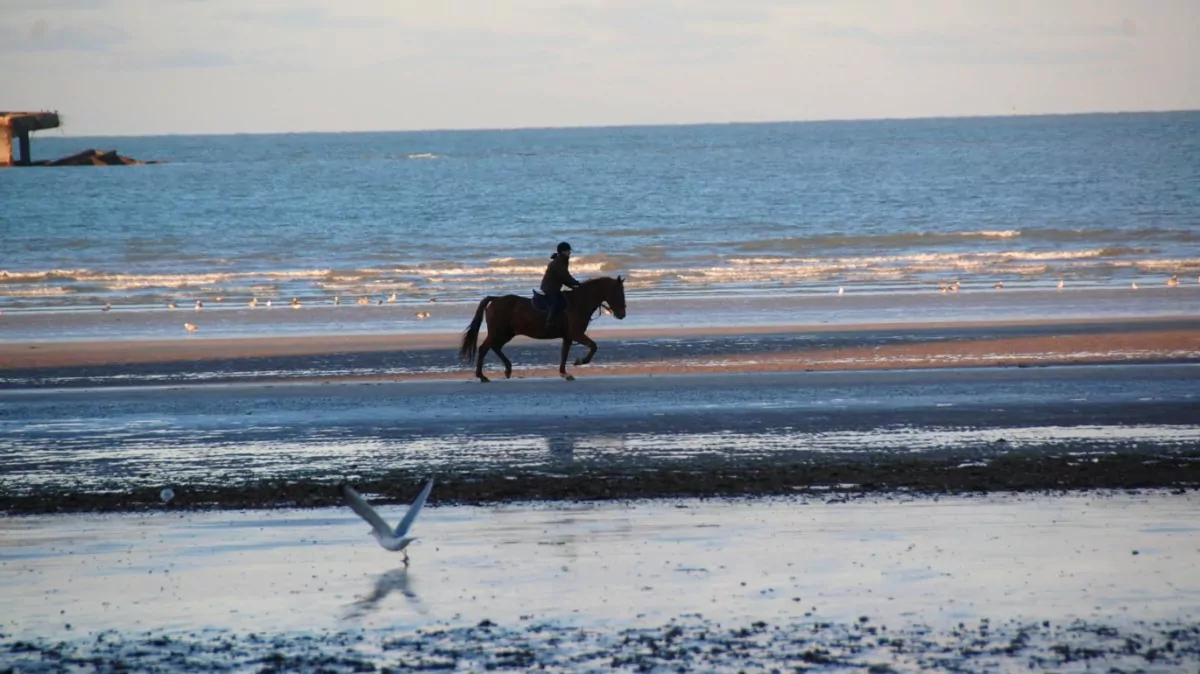










Catherine says:
I love johanne hildebrandt so maybe I should read it. I read other descriptions by others from Iraq, among other things, and feel that it is so hard to read. It etches itself as you say so much.
30 March 2016 - 7:57
Cathinka says:
Fantastic selection! I found a few titles to add to the reading list, thank you!//Tinka
30 March 2016 - 8:10
Lennart says:
I have read a short break, very poignant.
30 March 2016 - 8:34
admin says:
Katarina, that's right! Good, but hard...
Cathinka, glad you liked the list! 🙂
Lennart, yes it is!?
30 March 2016 - 8:50
Marina says:
I listen to a lot of audiobooks and the absolute best I listen to and would highly recommend are
The Last Witnesses by Svetlana Alexievich ⭐️⭐️⭐️⭐️⭐️
30 March 2016 - 9:07
Ama de casa says:
Reminds me that I need to download some more books for my tablet. I have certainly become modern! Well, a bit modern, anyway....
30 March 2016 - 9:18
Helena says:
Sarah's key is one of the better books I have read. Saw the film too and actually thought it was good too. Usually don't like the films after reading the book first.
30 March 2016 - 9:22
Anja says:
Great!!! My two biggest recent reading experiences are from Denmark (Carsten Jensen - We, the Drowned): http://www.bokus.com/bok/9789100114459/vi-de-drunknade/
and from Norway (Lars Mytting - Swimming with the drowned): http://www.bokus.com/bok/9789146228585/simma-med-de-drunknade/
These are also novels that are real page-turners! Strange coincidence with the titles 🙂 ...
30 March 2016 - 10:11
Ditte says:
Thanks for the great book tips and some I have read with great pleasure and others are now on my reading list.
I also give a special mention to "The Last Witness" by Svetlana Alexievich.
As for France and life in a village, I think Bodil Malmström's books about Finistère are good and Joyo Moyes tells a good story about life in Britain in "One Hundred Miles", for example.
One book I liked was "The time in between" by Maria Duenas.
The story centres on a woman, Sira, who falls in love with a man and in 1936 leaves her well-ordered Spanish life and moves to Morocco for a few years. Abandoned and forced to build a new life in Morocco, she becomes a fashion seamstress for the women of this cosmopolitan colony in exile. After the outbreak of World War II, she is recruited by British intelligence and returns to Madrid under the guise of the fashion designer Arish. In the studio, Sira hears gossip and information from Nazi wives and mistresses, which she smuggles out in the form of Morse code on sewing patterns. How far can you go to help others without losing your identity?
Noted that the list contained a number of books set during the Second World War and perhaps it is time to remind us to never forget what happened.
30 March 2016 - 10:24
nils-åke hansson says:
Thanks for the tips on books I have started to read!
30 March 2016 - 10:58
Ruth in Virginia says:
"The Matron of the East End" is a TV series here.
Liked it very much.
30 March 2016 - 11:20
BP says:
I'm really impressed here! You are a living book database!
Interesting if you want to learn more about the history of these countries.
I watched the midwife in Eastend on TV. It was good!
30 March 2016 - 11:41
Mr Steve says:
So I can travel too.
30 March 2016 - 15:35
anita wag agrimanaki says:
Thanks for the tips! (must go back to an older post you had with book tips as well) now I have the entire Swedish library at my disposal so now it's time to read!
30 March 2016 - 16:28
admin says:
Marina, many thanks for the tips! 🙂
Ama de casa, we are actually so modern too! Heavenly convenient with a tablet when you were travelling for a year 😉.
Helena, I didn't even know it existed as a film. Glad the film was good too!
Anja, thanks for the tips! Oh how many books I want to read when I have more time...! And what an incredible coincidence with the titles!!!
Ditte, thank you for many interesting tips! Of course, I'm curious about The Last Witness now and The Time Between also sounds interesting! Yes, I noticed myself that there were many books related to the Second World War. I have no specific interest in it, but it is of course an important and interesting part of European history, so maybe it's not so strange that many interesting books are set during that time. And yes, we may need to be reminded of history in these times!
Nils-Åke, glad you are reading! I do not read at all right now, but usually read a lot when we are travelling or out with the motorhome!
Ruth in Virginia, it may have been a series here too, but I missed it unfortunately.
BP, I love to read (and so does Peter, although he reads more suspense) but it's only when we have time, mostly when we're travelling or out in the camper van 😉.
Steve, yes, but what about it? 😉
Anita, now you have lots of Swedish books available! Great! 🙂
30 March 2016 - 16:34
Ladies Abroad says:
Love your book tips, exactly the kind of books I usually like. Usually I have already read half of the ones on your lists but here they were all unread. So thank you so much for the tips.
30 March 2016 - 22:32
Steel City Anna says:
I have the literary taste of an old man or sometimes a small child so I like Fogelström's series on Stockholm, Beatrix Potter on the Lake District (England), W B Yeats' collected works (Ireland), Jane Eyre (Peak District, England), Winnie the Pooh (Sussex England) and some of W H Auden's poems written/set in New York have made me want to experience that city.
31 March 2016 - 0:13
admin says:
Ladies Abroad, so glad you like our book tips! 🙂
Steel City Anna, it's interesting about book taste! Many people love Fogelström's series, but I did not manage to get through it despite valiant attempts 😉.
31 March 2016 - 7:47
Malin says:
Fun list! Some of them I have read, others I intend to read like "Steel" and Göran Rosenberg's book, still others were new tips to absorb!
31 March 2016 - 9:16
admin says:
Malin, glad you appreciated the list! 🙂
01 April 2016 - 8:00
cat says:
Looks absolutely fantastic wonderful! Imagine being able to ride on a beach in France or a beach anywhere 🙂 ).
01 April 2016 - 22:34
admin says:
Cat, we didn't ride here ourselves but just photographed, but it looked fantastic! 🙂
02 April 2016 - 6:46
Katarina Wohlfart says:
The midwives are now available as a TV series on Netflix. Very good indeed and wonderfully English!
26 December 2016 - 11:59